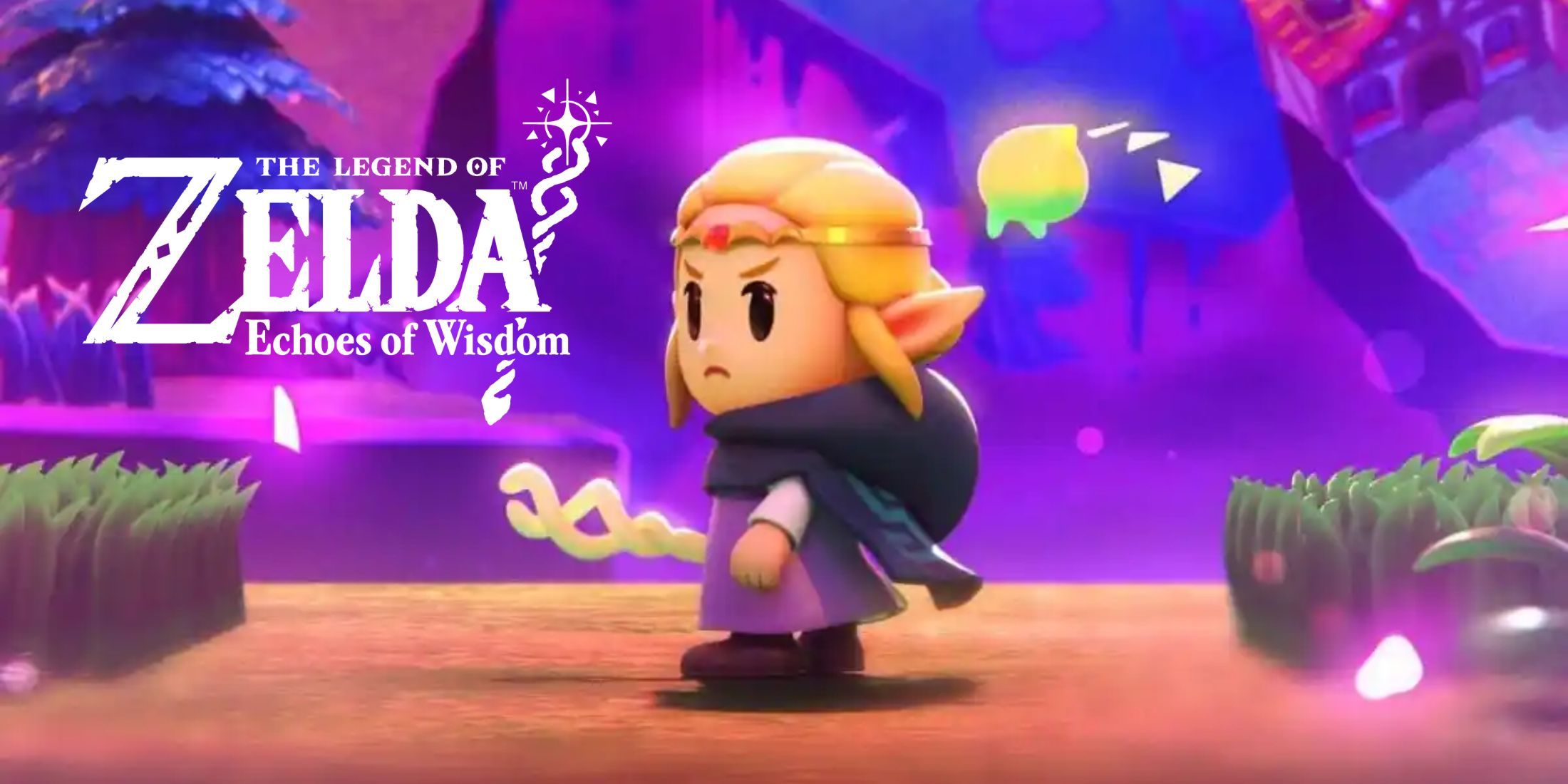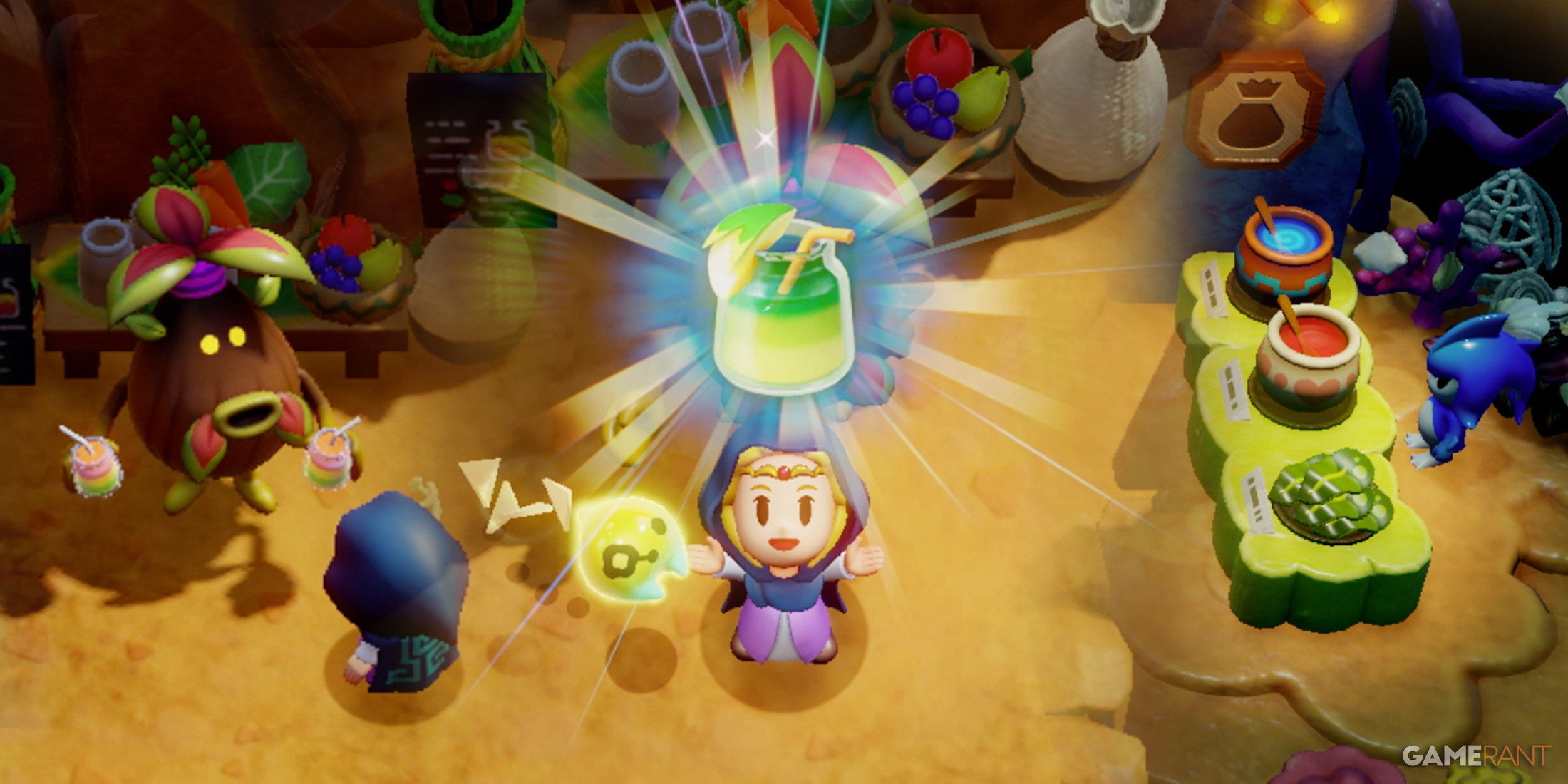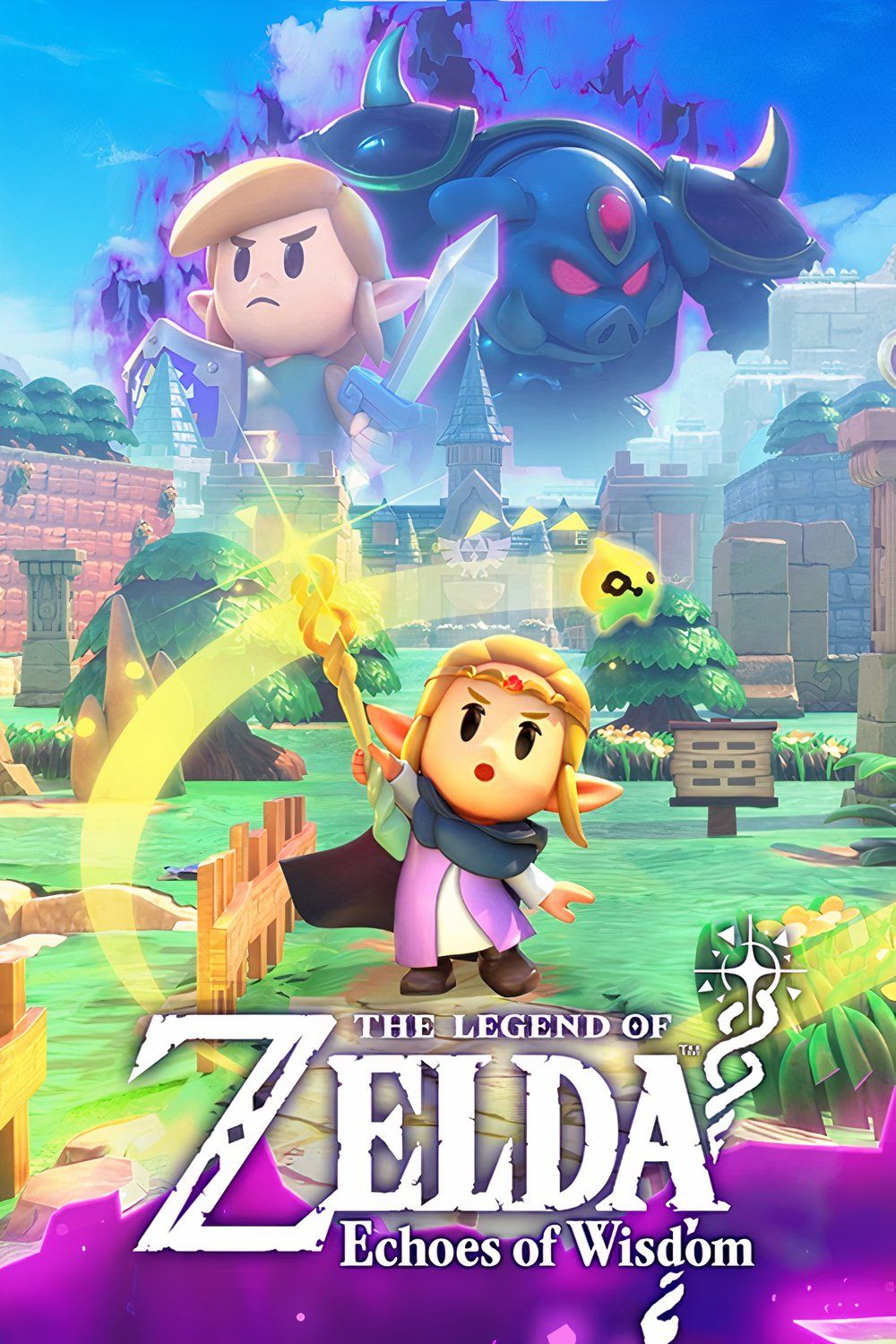The Legend of Zelda: Echoes of Wisdom is nothing if not novel. The game marks the first time that players actually take control of Zelda in a mainline release, and with this new protagonist comes a suite of distinct abilities, making both combat and puzzle-solving a world apart from its Link-helmed predecessors.
But Echoes of Wisdom doesn’t throw the baby out with the bathwater—there’s plenty from both old and new Zelda games that have made their way into this one. For instance, the interpretative puzzles from BOTW and TOTK, where there isn’t necessarily a single way to solve a given problem, reappear in Echoes of Wisdom. Part and parcel with this focus on player freedom is the central Echoes mechanic, which is reminiscent of Tears of the Kingdom‘s Ultrahand and Fuse abilities. But while these key features and design principles from the rest of modern Zelda work to great effect in Echoes of Wisdom, the game’s RPG, open-world, and stat-tweaking systems leave a bit to be desired, not improving much on the foundation laid by its predecessors.

Related
Zelda: Echoes of Wisdom May Be the Nail in the Coffin for One Dungeon Tradition
The Legend of Zelda’s classic series has been known to tackle dungeons a certain way, but Echoes of Wisdom shows another path entirely.
Zelda: Echoes of Wisdom Fails To Develop the Cooking Mechanics of BOTW, TOTK
Zelda: Echoes of Wisdom’s Smoothies – The Juice Isn’t Worth the Squeeze
Introduced in Breath of the Wild, cooking with ingredients found in the overworld has transcended the realm of 3D Zelda, making its way into Echoes of Wisdom. The practicalities and framing of the system are a bit different—players can only make smoothies at designated vendors—but its fundamentals are essentially the same: Zelda can mix various ingredients together to make concoctions that yield specific benefits.
In theory, this is a nice way to reward players for exploration and resource-collecting while adding a layer of strategy to the game, as preparing for an encounter by consuming certain buffs can provide an edge. But Echoes of Wisdom‘s smoothies, much like BOTW and TOTK‘s myriad recipes, fail to provide impactful or interesting buffs. Instead, they merely grant one particular advantage like increased defense or speed which, while helpful in certain instances, are never transformative enough for the process of finding and making new recipes to be rewarding. Ultimately, most players will wind up using these recipes as nothing more than a way to refill their health, as the tertiary benefits don’t go far enough to make greater experimentation worth it.
How Future Zelda Games Can Elevate Cooking Systems
The biggest reason why cooking can feel underwhelming in modern Zelda is its low potential for impacting gameplay. If a future entry in the series could raise this ceiling, so to speak, then it could make for a much more compelling addition to the open-world sandbox. For instance, a future Zelda game could leave the door open to more absurd cooking combinations, leading to buffs that threaten to break the game, like a 200% speed increase, or something along those lines. Naturally, ingredients for these recipes would be difficult to procure, but it would be a nice, fun way to reward experimentation and deeper engagement with this theoretical cooking system. Buff stacking, which is essentially absent in recent Zelda games, would be another way to crank up the impact of in-game food.
Such changes wouldn’t come without potential complications, but they could be worth it. These newer Zelda games are all about freedom and experimentation, as players can regularly find new and exciting ways to engage with their systems through a bit of outside-the-box thinking. This philosophy is omnipresent in the games’ puzzles and world design; it’s time for it to stretch into other mechanics as well.
Source link













Leave a Reply